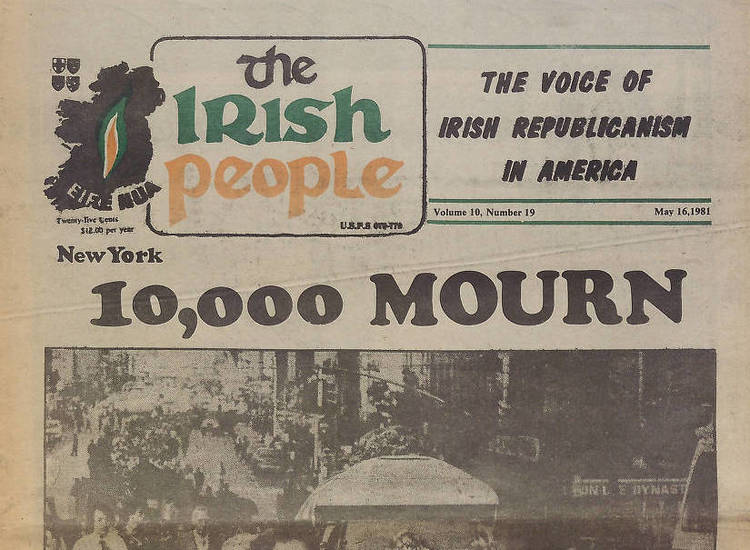Three jpg
Ambassador Kevin O’Malley
By Ray O’Hanlon
rohanlon@irishecho.com
It is three months this week since a letter was sent by Ireland’s Department of Foreign Affairs to the U.S. Embassy in Dublin on the matter of visa waivers for the undocumented Irish.
Receipt of the letter was acknowledged by the embassy, and there was also an indication that a reply would be forthcoming.
In the intervening months there have been discussions on the waiver issue between senior officials and political figures in both the Irish and U.S. government.
Irish foreign affairs minister, Charlie Flanagan, and U.S. Ambassador to Ireland. Kevin O’Malley, are understood to have discussed waivers on at least two occasions in the last month or so.
And the plight of the undocumented Irish has come up for discussion in the Dáil in recent days.
In a Dáil questions and answers session, Fianna Fáil TD, Brendan Smith, asked Minister Flanagan “if he will provide an update on his efforts on behalf of undocumented Irish emigrants in the United States of America; and if he will make a statement on the matter.
A reply on behalf of the minister stated: “Achieving relief for undocumented Irish migrants in the U.S. is a priority for the Government in our contacts with the United States.
“Through our Embassy in Washington and our Consulates throughout the U.S., we continue to work closely with high level Government contacts and with many other individuals and groups across Irish America and beyond. All of this work is aimed at achieving relief for undocumented Irish migrants in the United States and improved channels for legal migration between Ireland and America.
“During his visit to the U.S. in March and in a series of high level contacts with the U.S. Administration, with Congress and at State level, the Taoiseach raised the issue of immigration reform and the plight of the undocumented Irish, stressing that almost every family in Ireland is related to or knows somebody who is caught up in this deeply distressing situation.
“During his meeting with President Obama on 17 March the Taoiseach commended him on his executive action announced late last year. This action is currently the subject of legal proceedings in the U.S. federal courts. The Taoiseach emphasized the need to allow the undocumented to come out of the shadows and be free to travel home for family events.
“He also highlighted the issue of those amongst the Irish undocumented who might be eligible for visas, but who would be required to return to Ireland for their issuance and hence would require waivers for their prior period of undocumented residence.
“The Taoiseach also pointed to the need for a legal pathway to allow for future Irish immigration to the U.S. for those who wish to make a contribution there, expressing the hope that a political way forward could be found on this issue which would encourage progress on a comprehensive legislative package by Congress.
President Obama spoke of his executive actions on immigration reform and acknowledged the contribution of Irish immigrants to America’s development. He considered that one of the great strengths of the United States had always been its willingness to welcome new immigrants to its shores.
“I also raised immigration reform issues, including the possibility of immigration reform legislation and the question of visa waivers, when I met with Vice President Biden in Boston on 30 March. I have also had the opportunity to discuss these matters on a number of occasions recently with U.S. Ambassador O’Malley.
“In addition, the Taoiseach discussed immigration issues with Congressman Paul Ryan during his recent visit to Dublin on 30 March. The Government as a whole, including my Department in Dublin and our Embassy in Washington, will continue to actively follow up on all of the issues raised in recent contacts with the US Administration, with Congress and with the U.S. Embassy in Ireland.”
The waiver issue focuses on permitting undocumented immigrants to travel back to Ireland without triggering the three or ten year bars that would prevent them from returning to the U.S.
As the Irish Echo previously reported, it is possible to obtain visa waivers permitting travel back to Ireland, and, critically, a return to the United States.
But Ireland trails a number of countries in terms of securing visa waivers according to figures compiled by the U.S. State Department.
A list of the top twelve waiver-winning countries for the past three fiscal years shows Ireland in eighth place in each of those years.
In fiscal 2014, Irish applicants were granted 118 waivers, though there were also 280 refusals.
Ireland trails Mexico which is in first place with 8398 waivers in fiscal ’14, though Mexican applicants were also refused 35244 times.
Interestingly, the second place in the waivers-gained table, at 2211, is occupied by “Great Britain and N. Ireland,” which would presumably mean that some Irish passport holders from the North secured waivers to travel.
The figures were obtained by the Irish Lobby for Immigration Reform which has been campaigning for an end to the exclusion bars.
Also ahead of Ireland in the table, and beginning with third place, were Australia, Bermuda, Colombia, Norway and New Zealand. Immediately trailing Ireland in the list were Germany, the Dominican Republic, South Korea and Japan.
Waivers that remove the three and ten year bars are a matter for U.S. embassies and consulates, hence the importance of a response to the DFA letter from the U.S. Embassy in Dublin
In a “guidance” document for such diplomatic outposts, the State Department highlights the discretionary powers that embassies and consulates retain in the matter of waivers.
The document states in part: “ The Congress, in enacting INA 212(d)(3)(A), conferred upon the Secretary of State and consular officers the important discretionary function of recommending waivers for nonimmigrant visa (NIV) ineligibilities to the Department of Homeland Security (DHS) for approval.
“You should not hesitate to exercise this authority when the alien is entitled to seek waiver relief and is otherwise qualified for a visa, and when the granting of a waiver is not contrary to U.S. interests.
“The proper use of this authority should serve to further our immigration policy supporting freedom of travel, exchange of ideas, and humanitarian considerations, while at the same time ensuring, through appropriate screening, that our national welfare and security are being safeguarded.”
In cases where waivers are granted it is often the case that the applicant might be a parent of a U.S. citizen child or children, even though the applicant, he or she, might be undocumented.









